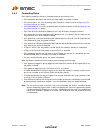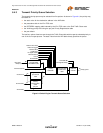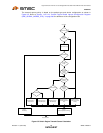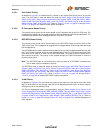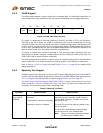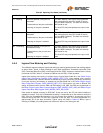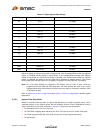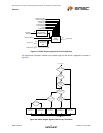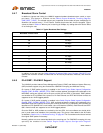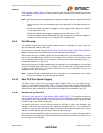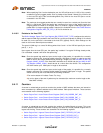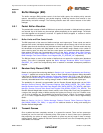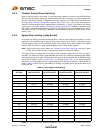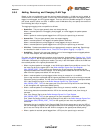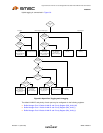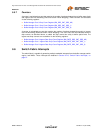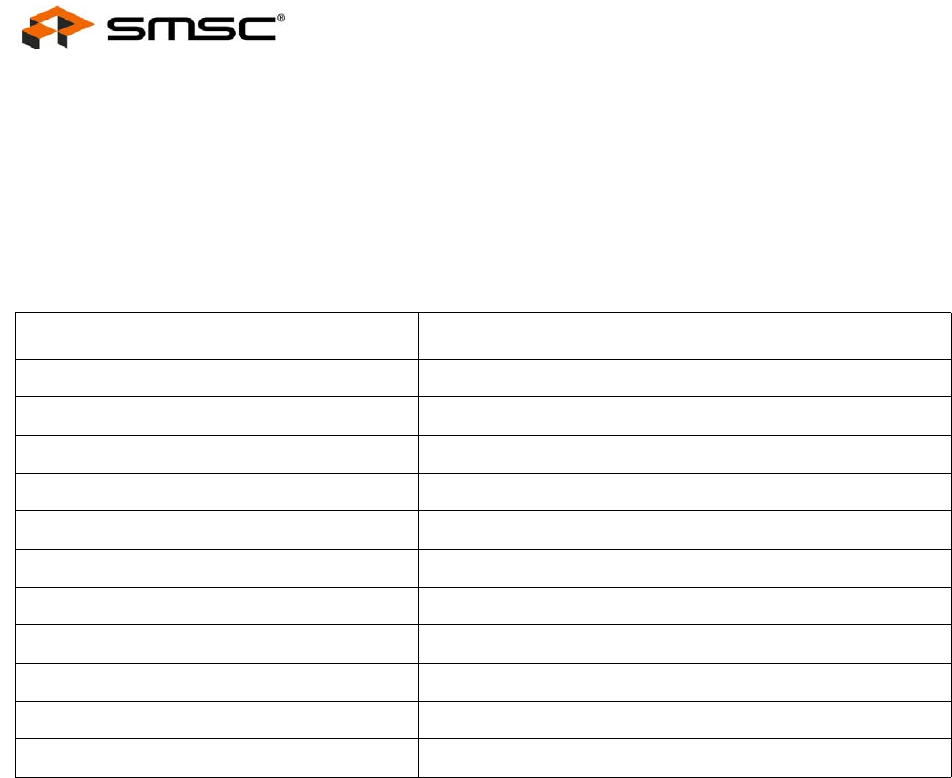
High Performance Two Port 10/100 Managed Ethernet Switch with 32-Bit Non-PCI CPU Interface
Datasheet
Revision 1.4 (08-19-08) 74 SMSC LAN9312
DATASHEET
6.4.7 Broadcast Storm Control
In addition to ingress rate limiting, the LAN9312 supports hardware broadcast storm control on a per
port basis. This feature is enabled via the Switch Engine Broadcast Throttling Register
(SWE_BCST_THROT). The allowed rate per port is specified as the number of bytes multiplied by 64
allowed to be received every 1.72 mS interval. Packets that exceed this limit are dropped. Typical
values are listed in Table 6.4. When a port is receiving at 10Mbps, any setting above 34 has the effect
of not limiting the rate.
In addition to the rate limit, the Buffer Manager Broadcast Buffer Level Register (BM_BCST_LVL)
specifies the maximum number of buffers that can be used by broadcasts, multicasts, and unknown
unicasts.
6.4.8 IPv4 IGMP / IPv6 MLD Support
The LAN9312 provides Internet Group Management Protocol (IGMP) and Multicast Listener Discovery
(MLD) hardware support using two mechanisms: IGMP/MLD snooping and Multicast Pruning.
On ingress, if IGMP packet snooping is enabled in the Switch Engine Global Ingress Configuration
Register (SWE_GLOBAL_INGRSS_CFG), IGMP multicast packets are trapped and redirected to the
MLD/IGMP snoop port (typically set to the port to which the host CPU is connected). IGMP packets
are identified as IPv4 packets with a protocol of 2. Both Ethernet and IEEE 802.3 frame formats are
supported as are VLAN tagged packets.
On ingress, if MLD packet snooping is enabled in the Switch Engine Global Ingress Configuration
Register (SWE_GLOBAL_INGRSS_CFG), MLD multicast packets are trapped and redirected to the
MLD/IGMP snoop port (typically set to the port to which the host CPU is connected). MLD packets are
identified as IPv6 packets with a next header value of 58 decimal (ICMPv6). Both Ethernet and IEEE
802.3 frame formats are supported as are VLAN tagged packets.
Once the IGMP or MLD packets are received by the host CPU, the host software can decide which
port or ports need to be members of the multicast group. This group is then added to the ALR table
as detailed in Section 6.4.1.3, "Multicast Pruning," on page 64. The host software should also forward
the original IGMP packet if necessary.
Normally, packets are never transmitted back to the receiving port. For IGMP/MLD snooping, this may
optionally be enabled via the Switch Engine Global Ingress Configuration Register
Table 6.4 Typical Broadcast Rate Settings
Broadcast Throttle Level Bandwidth
252 75 Mbps
168 50 Mbps
134 40 Mbps
67 20 Mbps
34 10 Mbps
17 5 Mbps
82.4 Mbps
41.2 Mbps
3 900 Kbps
2 600 Kbps
1 300 Kbps



